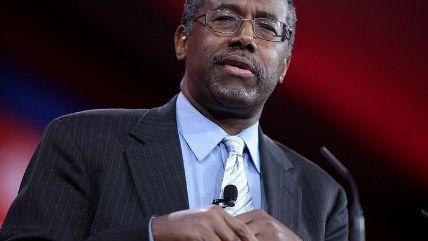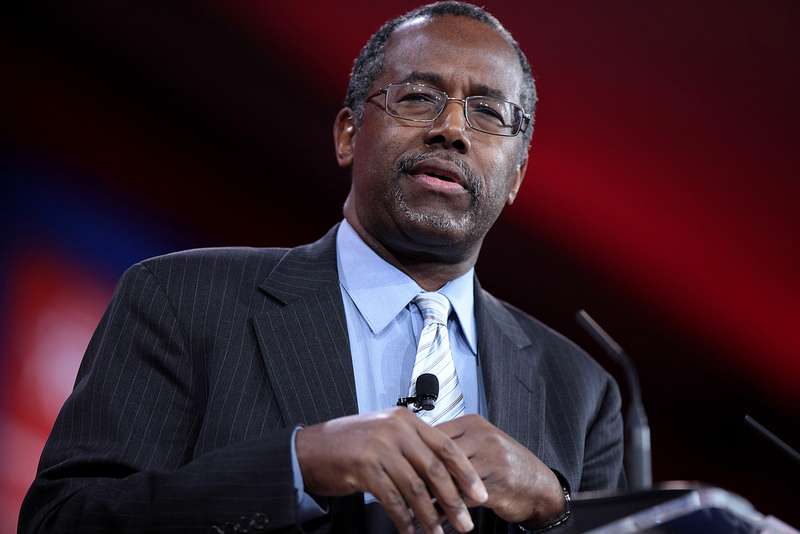Ben Carson Weighs In on Limits to the President's Power
He's vaguely in favor of them because of things that Barack Obama has done.


Ben Carson may be fading in this race faster than a 400-pound man trying to run a marathon, but he's still trying to chug along at his own pokey speed (like a 400-pound man … okay, you get it). The day after a reporter noted that almost none of the candidates had replied to a questionnaire about limits to the president's power, Carson provided his answers.
Over the weekend, Charlie Savage of The New York Times reported that only one candidate, Sen. Rand Paul, answered the questions on his survey about limits to the executive authority of the president (Hillary Clinton responded with a brief statement but did not answer the questions). Savage launched this survey prior to the 2008 presidential election, where the Democrats were hungry to declare that they would limit the president's power after eight years of George W. Bush. He updated and sent the survey out again for the 2012 election, where the Republicans were hungry to limit President Barack Obama's authority.
With the presidency completely up for grabs, Savage sent out his questionnaire again only to find that almost nobody wanted to go on the record to say that the president could not or should not do certain things. It's this year's presidential race in a nutshell, I noted on Saturday. With Donald Trump in the race on the right and Democrats looking at limited Congressional influence on the left, nothing is off limits in terms of executive promises.
But Carson pulled through with the survey after Savage analyzed the failure to respond (he sent the surveys out months ago, so he wasn't rushing to print here). Savage updated his documents to allow readers to see what Carson has to say about executive power Read here (Carson's answers start on page 13).
Carson's answers are a little bit stock and vague (much like his campaign), but he does acknowledge limits of presidential authority, mostly to represent a contrast from Obama. He says the president should "faithfully" enforce the law (which, he says, Obama is not doing in regards to illegal immigration). He says he would not use signing statements to declare that he will disregard parts of a law. He'll just veto it instead. He says that while the president can make agreements with other countries as matters of state, he thinks the president should turn to Congress for support on "controversial matters," such as a treaty with Iran (he gets points for understanding that the Trans-Pacific Partnership agreement will be subject to Congressional approval).
Carson raises questions about the constitutionality of the War Powers Act and says, "The president's authority to wage war and conduct foreign policy is supreme, and should be exercised according to limits set out by the Constitution." He does add later that he would not—absent an "imminent threat"—pursue lethal military action in another country without Congressional approval, and he will seek out a new Authorization to Use Military Force (AUMF) to target ISIS. He says it's difficult to imagine authorizing an American citizen to be detained and placed in a military prison without due process (which is not the same as saying that he wouldn't, but still). He does not believe the president has the power to order the deaths of Americans on American soil without due process, but that protection does not extend to Americans who have left the country to join terrorist groups that the president may target under an AUMF.
Carson gets very vague on questions on the president's authority to keep secrets, mostly saying that the president has the authority to keep things secret for matters of national security, but he or she shouldn't abuse this power. But he also says it's harmful to safety and security when classified information is made public through the media, without acknowledging his own previous concerns about abuse of the power to classify information. He also declines to list his legal advisors.
Ultimately, there's nothing particularly special or unexpected about Carson's answers other than his willingness to actually provide them, and good for him for doing so.


Show Comments (10)